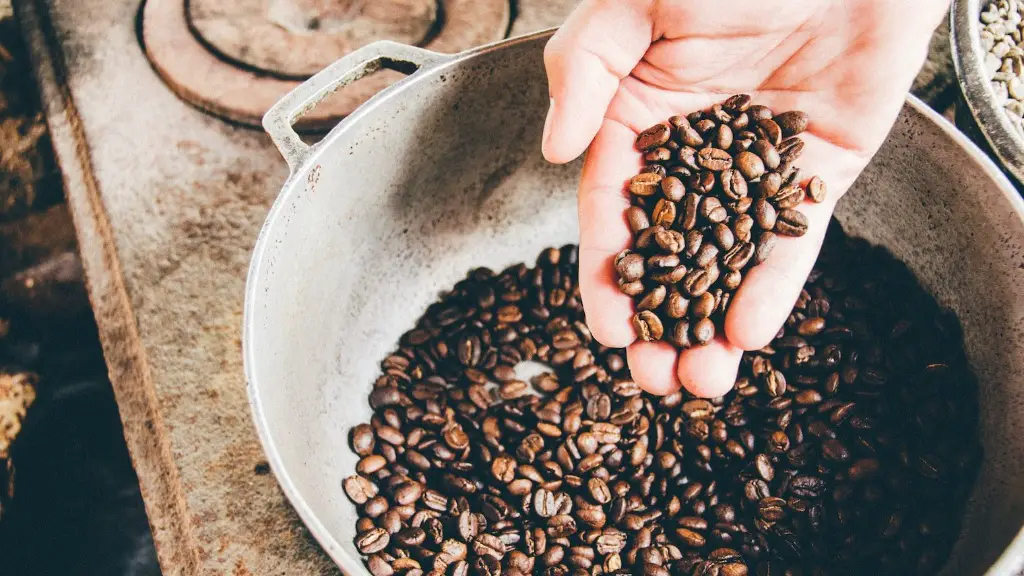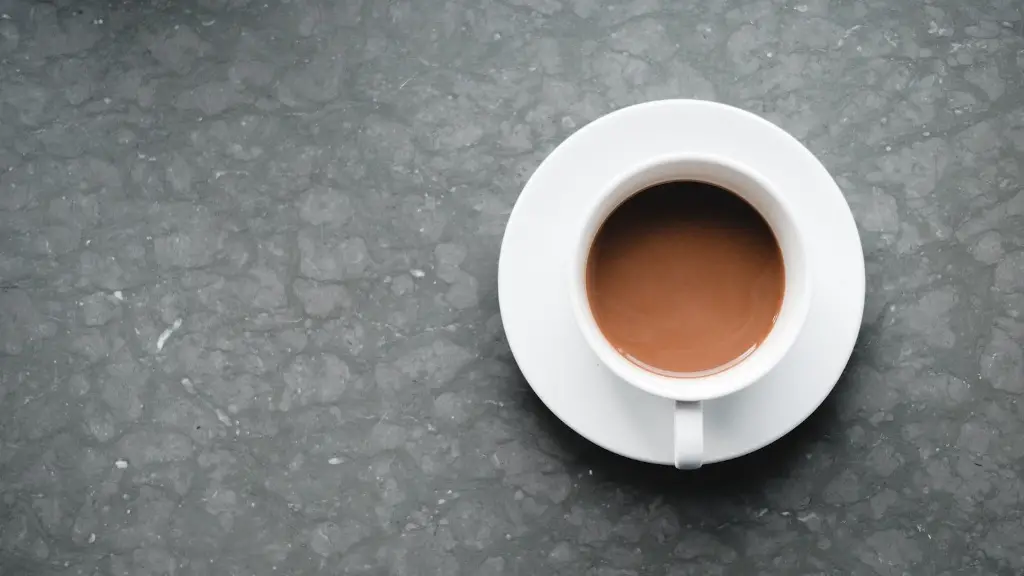Women can feel pretty rough when their period arrives, and some people think that downing a strong cup of coffee might help. But as it turns out, this isn’t necessarily the best way to manage symptoms. While most people have heard that caffeine has its pros and cons, few know that drinking coffee on your period can actually have a serious negative impact on your menstrual health.
Caffeine can be a great stimulus, especially on those days when you’re feeling tired and drained. However, too much of it can be detrimental. Research suggests that caffeine acts as a diuretic, so it can increase levels of stress hormones, cause inflammation, and worsen menstrual cramps. Additionally, as caffeine increases your heart rate and blood pressure, you may experience more pronounced headaches and dizziness.
Dr. Suzanne Gilberg-Lenz, a gynecologist at the Women’s Care of Beverly Hills, says it’s important to understand that drinking too much coffee can be problematic, particularly during your period. This is because the hormones released during your period already cause inflammation, and caffeine can increase that inflammation. The result? More severe cramping, headaches, and other period-related issues.
Studies have also found that caffeine can delay the production of hormones associated with the menstrual cycle, leading to a later period. This can be very detrimental to those who already have an irregular cycle, as it will disrupt it further.
It’s not just coffee either. Any drink that contains caffeine, including teas and energy drinks, can have the same effect on your menstrual cycle. That’s why it’s important to avoid or limit your intake of these beverages during your period.
However, if you do want to drink coffee, there are ways to do it without negatively affecting your menstrual cycle. Try limiting your intake to one cup of coffee per day, and opt for decaffeinated drinks if you need a caffeine boost. Additionally, go for cold brews over hot lattes or cappuccinos, as cold brews have less caffeine and more antioxidants.
While drinking coffee on your period may seem like a good idea for a boost of energy, it’s best to avoid doing so, or at least limit your intake. This way, you can reduce your risk of menstrual cramps, headaches, and other related problems.
Herbal Teas And Supplements
For those who are looking for an alternative to coffee during their period, there are several herbal teas and supplements that can help alleviate the symptoms. For instance, chamomile tea is known to help relieve pain and reduce inflammation. Similarly, raspberry leaf tea is believed to be an effective remedy for menstrual cramps. Magnesium supplements are also thought to help reduce cramping, as they relax the muscles and regulate hormone levels.
If you prefer something more potent, valerian root, cramp bark, and dong quai are all herbs that can help reduce menstrual cramps. However, it’s important to note that every supplement or herbal remedy affects people differently, so it’s best to discuss this with your doctor beforehand. That way, you can find out what works best for your body.
Whatever you choose in place of coffee, make sure to drink plenty of water. Staying hydrated during your period is essential for helping alleviate pain and reduce inflammation. Additionally, water helps flush out toxins and helps regulate your hormones.
Healthy Diet And Exercise
In addition to herbal teas and supplements, a healthy diet and regular exercise can help make your period more bearable. Eating plenty of fresh fruits and vegetables, as well as whole grains and healthy fats, can reduce inflammation and improve your menstrual cycle. Eating a balanced diet will also give you the nutrients you need to stay energized and stave off fatigue.
In terms of exercise, regular physical activity is essential for managing period symptoms. Moderate exercise helps reduce cramping, bloating, and mood swings. Additionally, it can help reduce stress and improve your overall wellbeing. Even just a short walk or jog can do wonders for your menstrual health. That said, make sure to listen to your body and only do what feels comfortable.
Managing Stress Levels
Finally, managing your stress levels is also important when it comes to managing your menstrual health. As it turns out, stress hormones can play a role in how painful your period is. So finding ways to manage your stress is essential. This could include anything from yoga and meditation to simply taking some time out for yourself and doing something relaxing.
It’s also important to get the right amount of sleep. Sleep deprivation can worsen the symptoms of PMS, and all the hormones released by your body during your period can make it difficult to get to sleep. That said, it’s best to practice good sleeping habits, such as avoiding screens and caffeine before bed, and getting into a relaxing routine.
There are also other lifestyle changes that can help alleviate period symptoms. For instance, avoiding alcohol and smoking, as well as cutting down on sugar and processed foods, can all help reduce inflammation and regulate your hormones.
Essential Oils
Essential oils can also be a great way to manage period symptoms. Oils such as lavender, clary sage, and chamomile are thought to be particularly effective. They can help reduce inflammation, alleviate stress, and even relieve cramps. Additionally, they can be used as aromatherapy to help relax the body and mind.
Essential oils can be used in a variety of ways, such as in a diffuser, in a bath, or even as a topical treatment. However, it’s important to research the oil you’re using, as some may not be suitable for certain skin types. Additionally, using too much or using an oil that is too strong can be dangerous.
So, while essential oils can be beneficial, you should always make sure to use them safely and as instructed. Additionally, always consult your doctor if you have any concerns.
Yoga And Meditation
Yoga and meditation are another great way to manage period symptoms. Practicing yoga and meditation can help alleviate stress, reduce inflammation, and soothe cramps. Additionally, the deep breathing exercises done during yoga can help relax the body and relieve tension.
Yoga can also help to improve your posture, which in turn can help reduce bloat and improve your overall wellbeing. That said, make sure to listen to your body and only do poses that are comfortable for you. Additionally, if you’re new to yoga, it’s best to start with beginner poses and work your way up.
Similarly, mediation can be very beneficial during your period, as it can help reduce stress and improve your overall outlook. Taking just a few minutes a day to practice can do wonders for your menstrual health. Additionally, the simple act of meditating can help you reconnect with yourself and your body, which can be hugely beneficial.





